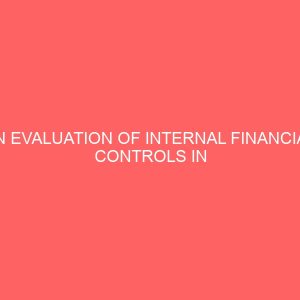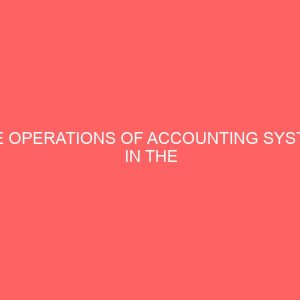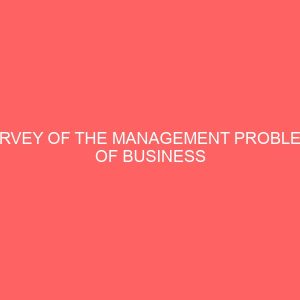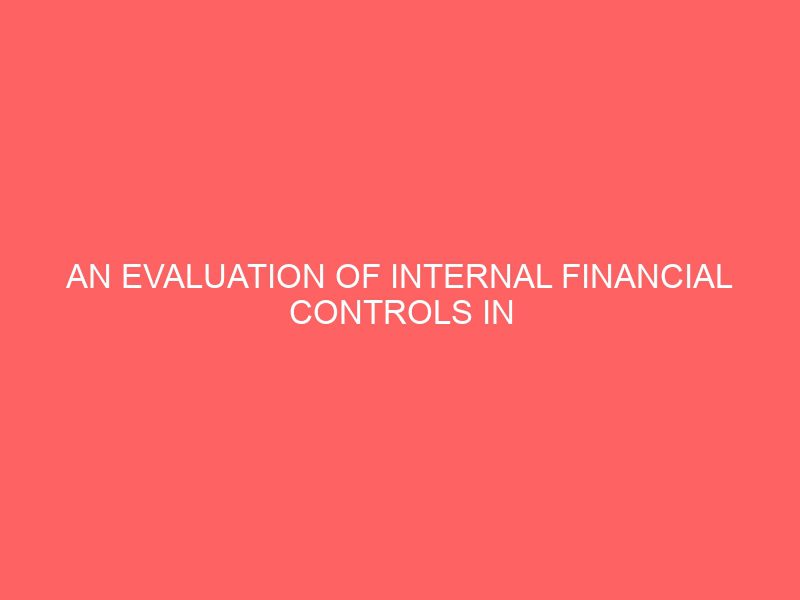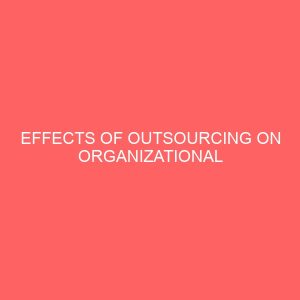Description
CHAPTER ONE INTRODUCTION 1.0 Introduction to the Study Internal financial controls are systems within a company that design methods and procedures to produce effective operations, establish reliable financial reporting, avoid fraud and maintain compliance with regulations and laws. Internal financial controls evaluation is meant to help institution review and assess the structure of accountability within the organization. An effective system of internal financial controls gives assurance regarding the integrity of financial reporting and safeguarding of assets. Fraud can easily be detected through internal controls. Such controls also help accuracy in financial reporting (Asare, 2006). Internal financial controls are used by organisations to make sure financial information is accurate and valid. The existences of internal financial controls are important because they protect the integrity of an organisation’s financial information and allow stakeholders a measure of financial health. Strong internal controls can also increase the profitability of a company (Krishnan, 2005). Public corporations have shareholders demanding accountability. However, in public hospitals accountability demands are not as strong. In the case of hospitals, the taxpayers and donors typically are late in taking action, but because of funding questions, the incentives for and number of effective internal financial controls in the public sector continues to increase (Hardimam, 2006) U.S. Government Accountability Office (GAO) recommends the use of internal financial controls to improve financial reporting in the public sector (George, 2005). 1.1 Statement of the Problem

